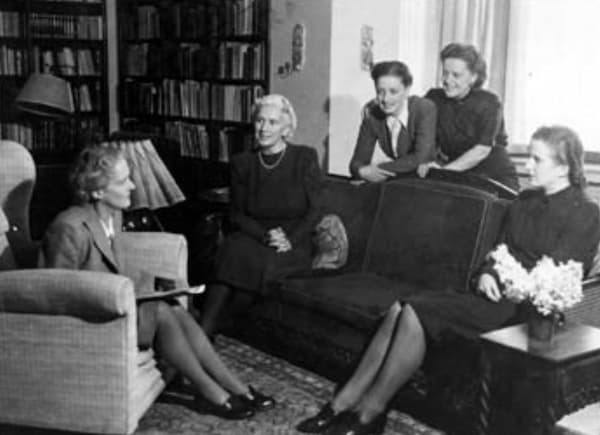Many music history lovers know that Johann Sebastian Bach had many children: twenty kids by two wives.
What fewer people know is that the wider Bach family was famously fertile…as well as famously musical.
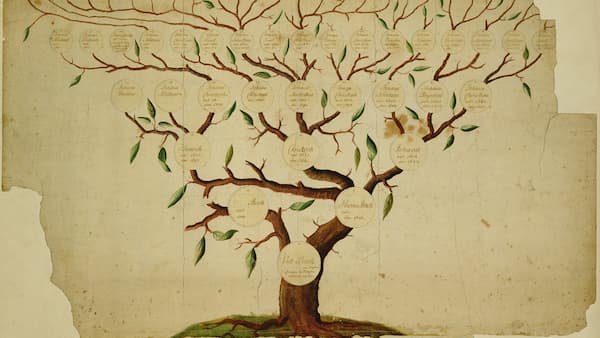
The Bach family tree © aco.com.au
In fact, the Wikipedia article on the Bach family includes over 75 names.
Many of these Bachs – who lived before, during, and after the lifespan of Johann Sebastian Bach – were professional musicians.
Today we’re taking a look at ten of the most interesting musical Bachs who weren’t Johann Sebastian or his children.
(If you want to find out what happened to Bach’s twenty children, we wrote an article about them here.)
Let’s get started!
Veit Bach (1550-1619)
Johann Sebastian Bach’s great-great-grandfather
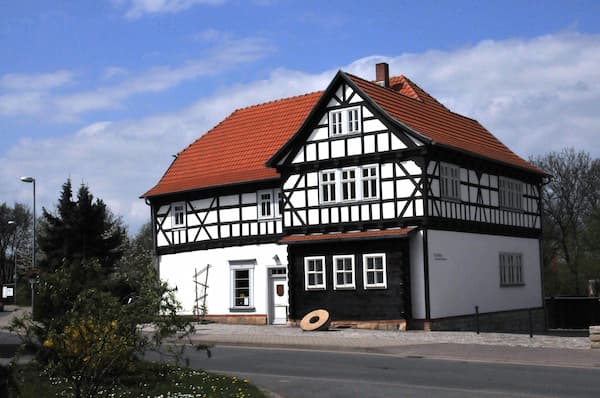
The Veit-Bach-Mill at Thuringia
Veit Bach was born around 1550 near present-day Bratislava in the Kingdom of Hungary. He worked as a miller and a baker.
During his lifetime, the Kingdom of Hungary was under the control of the Vienna-based Hapsburg dynasty. The Hapsburgs were Catholic, while Veit was Protestant.
At the time, Protestantism was a relatively new movement. Martin Luther had released his famous Ninety-five Theses, a protest against what he viewed as Catholic corruption, in 1517, only a generation before Veit Bach was born.
To escape religious persecution, Veit Bach moved to Wechmar in the German state of Thuringia, almost halfway between the cities of Leipzig and Frankfurt.
He continued working as a miller after the move. According to local legend, he would play an instrument called the cythringen, a kind of Renaissance-era guitar-like instrument, in rhythm to the sounds of the mill.
Johannes Bach I (15?? – 1626)
Johann Sebastian Bach’s great-grandfather
Johannes Bach I was Veit Bach’s son and born in Wechmar. We’re not sure what year.
According to a family genealogy that Johann Sebastian Bach and his sons assembled generations later, Johannes began his professional life as a baker.
Later, however, he took an apprenticeship as a town piper in the town of Gotha, ten kilometers away from his birthplace.
Tragically, he died of the plague in 1626.
Interestingly, the eulogy for one of Johannes Bach I’s sons stated that his father had once been a carpet weaver. The early members of this musical dynasty clearly had non-musical day jobs to support themselves.
Christoph Bach (1613-1661)
Johann Sebastian Bach’s grandfather
Johannes Bach I had several musician sons. One of them was Christoph Bach, who was born in Wechmar, becoming a court musician there. His brothers also became musicians.
During his career, Christoph Bach took musical jobs in the neighboring towns of Erfurt and Arnstadt. (His famous grandson Johann Sebastian would work in Arnstadt, too.)
He married a woman named Maria Magdalena Grabler. She had three sons: Georg Christian Bach in 1642 and twins Johann Ambrosius Bach and Johann Christian Bach in 1645. (Twins ran in the Bach family!)
Christoph Bach died in 1661 in Arnstadt.
Johann Ambrosius Bach (1645-1695)
Johann Sebastian Bach’s father
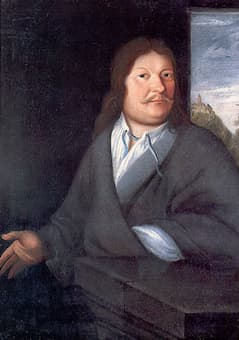
Johann Ambrosius Bach, J.S. Bach’s father
Johann Ambrosius Bach and his twin Johann Christoph were born in 1645, when their father was working as a musician in Erfurt.
Johann Ambrosius would have been surrounded by music at an early age. He ultimately followed in his father’s footsteps and became a professional violinist and trumpet player.
Tragically, Johann Ambrosius became an orphan when he was just 16. He and his twin moved in with an uncle until they could support themselves.
In 1668, when Johann Ambrosius was 23, he married a woman named Maria Elisabeth Lämmerhirt.
In 1671, the couple moved to Eisenach, forty kilometers from Wechmar, so that Johann Ambrosius could take a job as the town musician. Together they would have eight children, including Johann Sebastian in 1685.
Tragedy struck in the spring of 1694 when Maria Elisabeth died.
Johann Ambrosius, in desperate need of a wife to help raise his children, remarried that November.
But this union was doomed, too: he died in March 1695, making Johann Sebastian Bach an orphan just weeks before his tenth birthday.
Johann Christoph Bach (1645-1693)
Johann Sebastian Bach’s uncle
Johann Christoph Bach was Johann Ambrosius Bach’s twin.
One of Johann Sebastian Bach’s sons later wrote, “They loved each other tenderly, and looked so much alike that even their own wives could not distinguish them.”
Like his twin and their father, Johann Christoph became a professional musician, first working in the town band in Erfurt and later as a violinist in the Arnstadt court.
Johann Christoph had a volatile temper and lashed out at the musicians in Arnstadt. (Apparently, high tempers and perfectionism ran in the Bach family!) Things got so bad that he was fired.
In 1682, he got his job back, thanks to the intervention of Arnstadt-based Count Anton Günther II, a celebrated patron of music.
Johann Christoph’s biggest claim to fame might be that he introduced his nephew Johann Sebastian to the organ.
Johann Christoph Bach (1671-1721)
Johann Sebastian Bach’s brother
Here’s another Johann Christoph Bach! (The family loved reusing names.)
This particular Johann Christoph Bach was born in Erfurt in 1671, but raised in Eisenach, where his brother Johann Sebastian, fourteen years his junior, was born.
In 1686, as a teenager, he was sent back to Erfurt to apprentice under Johann Pachelbel. He worked as an organist in Erfurt and Arnstadt.
In 1690, he got a job playing organ in the nearby town of Ohrdruf. His and Johann Sebastian’s mother died in the spring of 1694, and their father less than a year later.
In between his parents’ deaths, Johann Christoph got married to a woman named Dorothea von Hof. This meant that after his father’s death, he was no longer a bachelor and was in a position to take in ten-year-old Johann Sebastian.
Not only did Johann Christoph take in Johann Sebastian, he also continued his musical education.
We don’t know exactly what their relationship was like, but Bach’s biographer Johann Nikolaus Forkel wrote in his 1802 biography:
The most renowned Clavier composers of that day were Froberger, Fischer, Johann Caspar Kerl, Pachelbel, Buxtehude, Bruhns, and Böhm. Johann Christoph possessed a book containing several pieces by these masters, and [Johann Sebastian] Bach begged earnestly for it, but without effect. Refusal increasing his determination, he laid his plans to get the book without his brother’s knowledge. It was kept on a book-shelf which had a latticed front. Bach’s hands were small. Inserting them, he got hold of the book, rolled it up, and drew it out. As he was not allowed a candle, he could only copy it on moonlight nights, and it was six months before he finished his heavy task. As soon as it was completed, he looked forward to using in secret a treasure won by so much labour. But his brother found the copy and took it from him without pity, nor did Bach recover it until his brother’s death soon after.
If the story is true, Johann Sebastian didn’t hold his brother’s strictness against him. He later composed a Capriccio in E major (BWV 993) in honor of Johann Christoph.
Johann Sebastian Bach: Capriccio in E Major, BWV 993
Johann Ernst Bach I (1683-1739)
Johann Sebastian Bach’s cousin
Twins Johann Ambrosius Bach and Johann Christoph Bach both had children. The former fathered Johann Sebastian, while the latter fathered (among others) Johann Ernst Bach I.
Johann Ernst was born in Arnstadt in 1683. Johann Ernst’s father died ten years later. He moved to Ohrdruf to be near family.
After Johann Sebastian’s parents died and he also moved to Ohrdruf, the two musical cousins began going to school together.
He studied briefly in Frankfurt before securing a job there. A few years later, he moved back to Arnstadt and became Johann Sebastian’s organ-playing substitute.
After Johann Sebastian moved away in 1707, Johann Ernst applied for his vacated position. He won the job…but his salary was less than half of what his cousin’s had been.
He died in 1739 in his mid-fifties.
Wilhelm Friedrich Ernst Bach (1759-1845)
Johann Sebastian Bach’s grandson
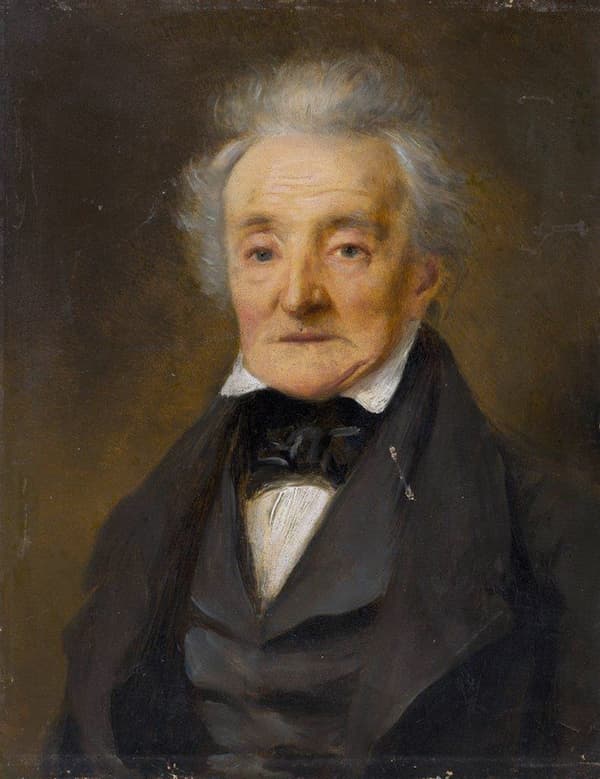
Wilhelm Friedrich Ernst Bach
Wilhelm Friedrich Ernst Bach was the grandson of Johann Sebastian Bach, through Johann Christoph Friedrich Bach.
He was born in 1759 and received his initial musical training from two of his uncles, C.P.E. Bach and Johann Christian Bach.
When Johann Christian Bach, Johann Sebastian’s youngest son, died in 1782 in London, Wilhelm was present at his deathbed.
Between 1788 and 1811, he worked as Kapellmeister in Berlin at the court of Prince Frederick William II of Prussia. After he received a pension, he retired.
Wilhelm’s most famous piece is possibly the Dreyblatt, a titillating work for piano six hands. It requires one man sitting in the center of the piano bench, with a woman on either side of him. Over the course of the work, the man has to reach behind and around the women.
Dreyblatt für Klavier zu 6 Händen (William Friedrich Ernst Bach)
In 1843, a monument to Johann Sebastian Bach was erected in Leipzig. Composer Robert Schumann was present, as was Wilhelm. Schumann described Wilhelm Friedrich Ernst as “a very agile old gentleman of 84 years with snow-white hair and expressive features.”
Wilhelm Friedrich Ernst Bach had four children. His eldest daughter Caroline died in 1871. She was the last surviving descendant of Johann Sebastian Bach.
He famously said of himself and his work, “Heredity can tend to run out of musical ideas.”
For more of the best in classical music, sign up for our E-Newsletter


